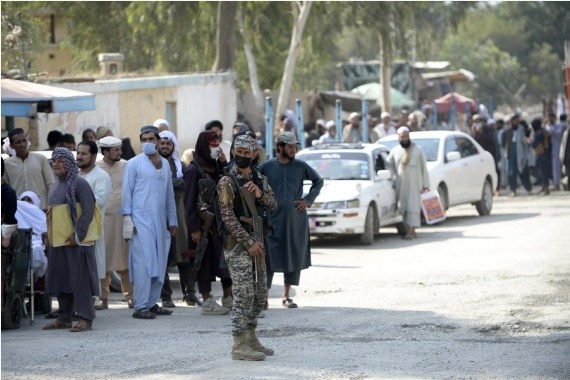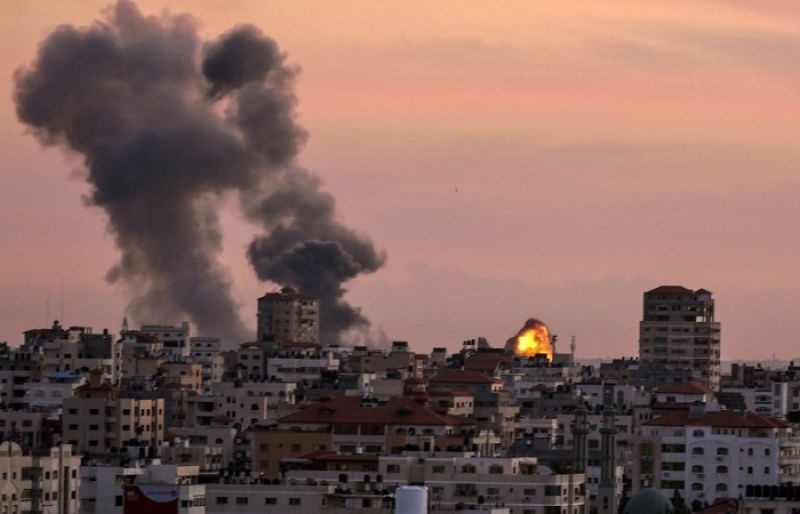While not questioning the government’s right to act, especially against those unregistered, Dawn newspaper asked if it is right in “uprooting hundreds of thousands of human beings who have scraped together a life in Pakistan and sending them back to an uncertain future defined by terror and turmoil seems unnecessarily cold, made all the more so by the short deadline given to them to pack up and leave”
Pakistan’s sudden resolve to evict 1.7 million Afghan nationals from its soil who have not been registered as refugees has run into trouble with Islamist parties and groups protesting and rights bodies expressing concern.
Although the all-powerful army is behind the move during the interregnum it enjoys with an interim, unelected government in office, criticism is conveniently mute on the military and the credibility and efficacy of the government is being questioned.
Maulana Fazlur Rahman, chief of the largest Islamist party, the Jamiat-ul-Ulema (Fazl), has called the move ‘inhuman.’ For Rehman, the present generation of refugees are the descendants of the fighters – Mujahideen – he trained in hundreds of madrassahs along the Pakistan-Afghan border during the 1980s ‘jihad’ against the Soviet-backed government in Kabul. These Afghans, whether or not they have voting rights, are his significant political supporters.
With Rehman in the lead, the Islamist groups have joined in and those proscribed by the government are working on the ground.

Analysts, both Pakistani and those outside, have said that each phase of instability in Afghanistan since the 1970s has brought in waves of families from the landlocked country. They say that Pakistan facilitated this since it was bankrolled by Saudi Arabia and had the political and military support from the US-led Western world then keen to fight the Russians. In the process, however, Pakistan became the hub of drugs and crime and the influx of armed fighters of various nationalities.
In an editorial, Dawn newspaper pointed to the cautions, both legal and on-the-ground practical by various United Nations agencies and NGOs working among the Afghans with last weekend’s massive earthquake in Afghanistan where over 2,000 people were killed and thousands rendered homeless.
It spoke of the “unseemly eagerness” by the caretaker government “eager to forcibly push those who had fled violence, persecution and impoverishment in Afghanistan back into that troubled country.” It pointed to one ministry of the Anwarul Haq Kakar government “even running a countdown on X (formerly Twitter) to remind undocumented migrants about the number of days they have remaining in this country.”
While not questioning the government’s right to act, especially against those unregistered, the newspaper asked if it is right in “uprooting hundreds of thousands of human beings who have scraped together a life in Pakistan and sending them back to an uncertain future defined by terror and turmoil seems unnecessarily cold, made all the more so by the short deadline given to them to pack up and leave.”
Significant criticism has been that the background to the eviction move has been framed in the context of the rise of militancy and terror violence that had an uptick this year. To blame Afghan settlers for this is wrong since various other factors, especially the home-grown militants and Islamists are responsible.
It also pointed to the role of the exploiters, touts and landlords evicting their Afghan tenants causing human misery.
Indicating that the move be put on hold, it pleaded: “At the bare minimum, the ongoing effort to deport all foreigners not holding a valid visa and passport requires international oversight to ensure that those being returned are not deprived of what little they possess in the process.”
“Ideally, the entire exercise needs to be reconsidered, but even if the decision is non-negotiable, the returning Afghans need to be treated with compassion. They are owed that,” the newspaper observed.








